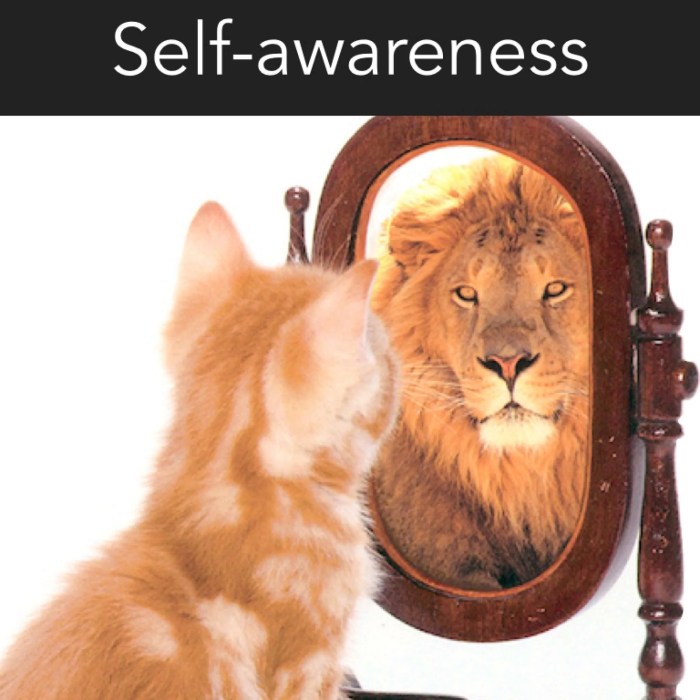10 reasons why introverts are incredible too. Introverts often get a bad rap, stereotyped as shy or unsociable. But beneath the surface lies a wealth of unique strengths and perspectives. This exploration delves into the fascinating world of introversion, highlighting the remarkable qualities that make introverts valuable contributors in all aspects of life, from personal relationships to professional settings.
This article will explore the nuances of introversion, differentiating it from shyness and social anxiety. We’ll uncover the strengths of introverts in leadership, creativity, problem-solving, and communication. We’ll also discuss how introverts can thrive in the workplace and social settings, while prioritizing self-care and understanding the common myths surrounding them.
Defining Introversion

Introversion is a fundamental aspect of personality, often misunderstood as shyness or a lack of sociability. It’s crucial to differentiate introversion from these related concepts. Introversion is a natural preference for inner experiences and less about outward displays of social interaction. It’s not a deficit or a character flaw, but a different way of experiencing and interacting with the world.Introverts derive energy from solitude and reflection, processing information internally before engaging in social situations.
This internal processing allows for deeper understanding and thoughtful communication, often resulting in insightful contributions and a nuanced perspective. They aren’t anti-social, but rather they approach social interactions differently.
Key Characteristics of Introversion
Introverts often prefer smaller, more intimate gatherings over large, boisterous events. They appreciate thoughtful conversations and meaningful connections rather than superficial interactions. Their inner world is rich with thoughts and ideas that they often explore and develop in quiet moments. This internal exploration fuels their ability to contribute meaningfully to discussions and offer unique perspectives.
Introversion vs. Shyness and Social Anxiety
Introversion is not the same as shyness or social anxiety. Shy individuals may avoid social situations due to fear of judgment or embarrassment. Individuals experiencing social anxiety may experience significant distress and discomfort in social settings. Introverts, on the other hand, simply find their energy depleted by extended social interactions, preferring to recharge in solitude. Their discomfort in large groups isn’t rooted in fear but rather a preference for their internal world.
How Introverts Recharge
Introverts recharge differently than extroverts. While extroverts gain energy from social interaction, introverts gain energy from solitude and quiet time. This quiet time allows them to process their experiences, reflect on their interactions, and prepare for future engagements. Activities like reading, listening to music, spending time in nature, or engaging in creative pursuits are common ways introverts replenish their energy.
Famous Introverts
Throughout history and in modern times, many notable figures have been introverts. Thinkers like J.K. Rowling, known for her introspective writing style and her focus on internal worlds, or Albert Einstein, a scientist who valued deep contemplation and quiet reflection, exemplify introversion in action. These individuals showcase that introversion is not a barrier to success, but rather a unique way of approaching life.
Table: Introverted Behavior and Possible Misinterpretations
| Introverted Behavior | Possible Misinterpretations |
|---|---|
| Preference for smaller social gatherings | Lack of interest in social interaction |
| Deep thinking and thoughtful communication | Lack of confidence or shyness |
| Need for solitude to recharge | Anti-social or aloof |
| Careful consideration before speaking | Hesitant or indecisive |
| Internal processing of information | Slow to react or unengaged |
Introverts’ Strengths in Various Contexts
Introverts often get a bad rap, stereotyped as shy or withdrawn. But beneath the quiet exterior lies a wealth of strengths, particularly in leadership, creative endeavors, and problem-solving. Their unique approach to the world, characterized by thoughtful consideration and deep analysis, often translates into exceptional performance in diverse fields. This exploration delves into how introverts excel in various contexts, highlighting their valuable contributions.Introversion isn’t a weakness; it’s a different way of interacting with the world.
Introverts recharge by spending time alone, processing information internally, and forming deep connections. This internal processing allows them to develop profound insights and strategic approaches that can be highly advantageous in numerous professional settings. They often possess a unique blend of observation and critical thinking that enables them to approach problems with a fresh perspective.
Introverts in Leadership Roles
Introverts often excel in leadership roles, leveraging their strategic thinking and deep analysis to make informed decisions. Their ability to carefully consider various perspectives before acting allows them to develop comprehensive strategies. They are often excellent listeners, allowing them to gather input from others and incorporate it into their plans in a thoughtful and measured way. This approach leads to more sustainable and effective leadership, prioritizing long-term goals and careful consideration of consequences.
They make thoughtful leaders who focus on effective action plans, not just immediate results.
Introverts in Creative Fields
Introverts thrive in creative fields like writing, art, and design. Their tendency to internalize and reflect on ideas allows them to develop unique perspectives and innovative approaches. Writers often find inspiration in solitude, crafting intricate narratives and exploring complex themes. Artists may spend hours alone, experimenting with techniques and materials, transforming their inner visions into tangible creations.
Designers, similarly, use their introspective nature to translate abstract concepts into tangible designs, solving complex problems with creative solutions. The quiet space is where their inspiration often comes from.
Introverts in Problem-Solving and Decision-Making
Introverts’ strength in problem-solving stems from their ability to carefully consider various factors before acting. Their thoughtful approach allows them to thoroughly analyze situations, identifying potential obstacles and solutions with meticulous precision. This measured approach often leads to more effective and sustainable solutions, focusing on long-term implications. They tend to avoid hasty decisions, preferring to gather all relevant information before forming a conclusion.
This meticulousness often leads to superior problem-solving outcomes.
Introverts in Communication and Interpersonal Interactions
Introverts are often perceived as less communicative, but their communication style is often quite thoughtful and effective. They tend to listen actively, absorbing information before responding, leading to more meaningful and insightful conversations. Introverts often choose their words carefully, ensuring their messages are clear and impactful. Their thoughtful responses, built on deep consideration, can be highly valued in interpersonal interactions, fostering trust and understanding.
Table: Introvert Strengths in Various Contexts
| Context | Introvert Strength | Example |
|---|---|---|
| Leadership | Strategic thinking, deep analysis | A CEO who meticulously studies market trends before making significant investment decisions. |
| Creative Fields | Unique perspectives, innovative approaches | A novelist who spends hours alone crafting intricate plots and characters. |
| Problem-Solving | Careful consideration, thorough analysis | A software engineer who meticulously debugs code, identifying and fixing errors with precision. |
| Communication | Thoughtful responses, active listening | A mediator who patiently listens to conflicting parties before proposing solutions. |
Introverts in the Workplace

Introverts often bring a unique and valuable perspective to the workplace. Their ability to focus deeply, analyze situations thoroughly, and think strategically can be powerful assets in team settings. However, navigating the often extroverted dynamics of the professional world can present challenges. This section explores how introverts can leverage their strengths, communicate effectively, and build confidence in their professional lives.Introverts often excel in roles that allow for focused work and thoughtful contributions.
They may thrive in research, analysis, and strategic planning, where their ability to process information quietly and deeply comes into play. Understanding these inherent strengths and how to channel them is crucial for introverts to thrive in the workplace.
Leveraging Introverted Traits for Team Collaboration
Introverted traits, such as careful consideration and deep thought, can greatly enhance team collaboration. Introverts often approach tasks with meticulous planning and attention to detail. This characteristic can lead to well-researched proposals and thoroughly considered solutions. Their ability to listen intently and analyze different perspectives can foster a more inclusive and well-rounded team discussion.
Effective Communication of Needs and Preferences
Clearly articulating needs and preferences is vital for introverts in the workplace. This process involves recognizing one’s own communication style and adapting it to the professional environment. Introverts may need to actively seek opportunities to share their insights and opinions, ensuring their voices are heard. Utilizing written communication channels like emails or internal documentation can be helpful, allowing introverts to express their thoughts in a structured manner.
Furthermore, scheduling one-on-one meetings with supervisors or colleagues can create a space for introverts to discuss their needs and preferences.
Building Confidence and Overcoming Social Anxiety
Building confidence is a key factor in overcoming social anxieties for introverts in professional settings. Seeking mentorship from experienced professionals, or joining a support group of fellow introverts, can provide invaluable encouragement and guidance. Participating in focused, smaller team projects can allow introverts to build confidence and experience in a low-pressure environment. Focusing on personal strengths, such as meticulous planning or deep analysis, can also enhance self-confidence.
Ever wondered why introverts are so awesome? Well, it’s not just about quiet contemplation; it’s about deep thinking and a unique perspective. Teaching kids valuable life skills like patience, critical thinking, and self-awareness, as outlined in this helpful guide on 10 life skills every parent should teach their kids , can nurture these traits. Ultimately, these qualities, found in abundance in introverts, make them incredibly valuable and well-rounded individuals.
Challenges Faced by Introverts in the Workplace
Introverts may face challenges in the workplace, including feeling unheard or overlooked in a fast-paced environment. They may also struggle with assertive communication, which can lead to their thoughts and ideas not being prioritized. The preference for focused, quiet work can be misconstrued as disinterest or a lack of engagement.
Introvert vs. Extrovert Communication Styles in the Workplace
| Characteristic | Introvert | Extrovert |
|---|---|---|
| Communication Style | Thoughtful, deliberate, and often written; listens actively before speaking. | Energetic, spontaneous, and often verbal; tends to speak more frequently. |
| Preference for Feedback | Often prefers written feedback; appreciates detailed explanations. | Often prefers verbal feedback; appreciates concise summaries. |
| Team Participation | Contributes thoughtful input, but may need time to prepare. | Actively participates and shares ideas frequently. |
| Meeting Participation | May need time to process information before contributing. | Often participates enthusiastically and immediately. |
Introverts in Social Settings
Introverts often find social interactions invigorating, but they also need time alone to recharge. Navigating social situations can be challenging, but with the right strategies, introverts can build meaningful relationships and feel comfortable participating in social gatherings. Understanding and respecting their unique needs is key to fostering fulfilling social lives.
Building Meaningful Relationships
Introverts build meaningful relationships by focusing on quality over quantity. Deep connections often flourish in smaller settings, where genuine conversation and shared interests can blossom. Prioritizing one-on-one interactions allows for a deeper understanding and appreciation of each other’s perspectives. This approach contrasts with the extroverted tendency toward large gatherings, which may not always lead to intimate connections.
Setting Healthy Boundaries, 10 reasons why introverts are incredible too
Setting healthy boundaries is crucial for introverts in social situations. It’s essential to communicate needs and limits regarding time commitment, energy expenditure, and the intensity of social interactions. This proactive approach allows introverts to maintain their well-being while participating in social events. Understanding that saying “no” is not a sign of disinterest, but rather a form of self-care, is key.
Participating Comfortably in Social Gatherings
Introverts can participate comfortably in social gatherings by selecting environments that allow for more manageable interaction. For instance, smaller gatherings or events with a focus on shared interests can be more conducive to comfortable participation. Actively listening and engaging in thoughtful conversation, rather than dominating the discussion, fosters positive interactions. Choosing to participate in activities that match their energy levels and interests will help them feel more at ease.
Initiating Conversations
Initiating conversations can be challenging for introverts, but it’s possible to make a meaningful connection. Focusing on shared interests and asking open-ended questions can encourage engaging conversations. Rather than trying to dominate the conversation, offering thoughtful responses and listening attentively can build rapport and create a more welcoming atmosphere.
Understanding and Respecting the Introverted Personality
Understanding and respecting the introverted personality in personal relationships is vital for building strong bonds. Recognizing the need for solitude, valuing thoughtful communication, and respecting the desire for smaller social gatherings will create an environment of mutual understanding and appreciation. Introverts appreciate partners who understand their need for quiet time and don’t pressure them into constant social interaction.
Ever wondered why introverts are so awesome? Well, it’s often because they possess a unique ability to recharge and gain strength from solitude, unlike those who might fall prey to common negative thought patterns. For example, if you’re struggling with self-doubt or comparing yourself to others, checking out this list of 12 common yet harmful negative thoughts everyone should avoid might help.
Ultimately, embracing your introverted nature, and actively working to counter those negative thoughts, leads to a deeper appreciation for the incredible qualities introverts bring to the table.
Strategies for Introverts in Social Settings
Understanding their needs and preferences is key to successfully navigating social situations. The following table illustrates some strategies introverts can employ:
| Social Setting | Introvert Strategy | Example |
|---|---|---|
| Large Party | Choose one or two people to talk to in depth; observe and listen to others’ conversations; engage in small talk strategically | At a large party, instead of trying to talk to everyone, focus on a few people with shared interests. Listen to their conversation, and when appropriate, ask insightful questions. |
| Small Gathering | Actively participate in discussions; be open to sharing thoughts and experiences; respect others’ need for quiet time | In a small gathering, actively participate in the discussion, but also be mindful of those who might prefer quiet time. |
| Formal Event | Select a designated person to chat with; focus on genuine conversation; avoid overwhelming interactions | At a formal event, find someone you have something in common with to engage in a conversation. Focus on a few engaging points, and don’t try to talk to too many people. |
Introverts and Self-Care: 10 Reasons Why Introverts Are Incredible Too
Introverts often prioritize inner reflection and quiet time. This natural inclination towards introspection can be a powerful tool for self-care, but it also requires conscious effort to ensure well-being. Understanding the specific needs of introverts and developing personalized self-care routines is crucial for maintaining their mental and emotional health. This allows them to thrive, both in their solitary moments and when engaging with the outside world.Introverts, by nature, often find their energy replenished through solitude and quiet activities.
Self-care practices are not just about pampering; they’re about understanding and nurturing their unique needs. This is essential to prevent burnout and maintain a positive mental state. Introverts’ self-care is often intertwined with their preferred methods of recharging.
Importance of Self-Care Practices for Introverts
Self-care practices for introverts are not merely luxuries; they are essential for maintaining well-being. They provide the necessary space for introspection, reflection, and restoration, which are often vital for managing stress and anxiety. These practices enable introverts to build resilience and maintain a healthy balance between their inner world and external interactions.
Examples of Activities for Introverts to Recharge
Introverts often thrive on activities that allow for deep focus and personal reflection. These activities can be as simple as reading a book, taking a long bath, or spending time in nature. They can also include engaging in hobbies like painting, journaling, or playing a musical instrument.
- Reading: Immersive reading allows for mental detachment from external stimuli, promoting relaxation and contemplation. It provides a much-needed escape from the demands of social interaction. A captivating novel or a thought-provoking biography can be incredibly restorative for an introvert.
- Nature Walks: Spending time in nature provides a calming and restorative experience for introverts. The quiet beauty of nature allows for contemplation and reflection, and the physical activity can help reduce stress and anxiety. A leisurely stroll through a park or a hike in the woods can be a powerful self-care practice.
- Creative Pursuits: Engaging in creative activities, such as painting, writing, or playing music, allows introverts to express themselves and explore their inner world. These activities often require deep focus and concentration, which can be deeply satisfying for an introvert.
Strategies for Managing Stress and Anxiety
Introverts’ natural tendency towards introspection can be a powerful tool for managing stress and anxiety. By focusing inward, introverts can identify the root causes of their stress and develop coping mechanisms. This self-awareness allows them to create a personalized approach to managing their well-being.
- Mindfulness and Meditation: These practices encourage a heightened awareness of the present moment, allowing introverts to observe their thoughts and feelings without judgment. This can help them detach from stressful situations and find inner peace.
- Journaling: Writing down thoughts and feelings can be a powerful way for introverts to process their emotions and gain clarity. This practice encourages introspection and helps introverts understand their emotional responses to different situations.
- Setting Boundaries: Introverts often need to establish clear boundaries to protect their energy and prevent burnout. This includes learning to say no to requests or commitments that drain their mental resources. It helps them avoid overextending themselves and maintain a healthy balance.
Prioritizing Needs and Creating a Supportive Environment
Creating a supportive environment that respects introverts’ need for solitude and quiet time is essential. This includes establishing personal routines and boundaries that promote a sense of control and well-being. Introverts benefit from a structured approach to their daily life that respects their need for alone time.
| Self-Care Activity | Benefit for Introverts |
|---|---|
| Reading | Provides mental detachment and relaxation |
| Nature Walks | Promotes contemplation and reduces stress |
| Creative Pursuits | Encourages self-expression and inner exploration |
| Mindfulness and Meditation | Encourages present-moment awareness and reduces anxiety |
| Journaling | Promotes emotional processing and clarity |
| Setting Boundaries | Protects energy and prevents burnout |
Myths and Misconceptions About Introverts
Introversion is often misunderstood, leading to common misconceptions that paint a skewed picture of who introverts truly are. These misconceptions can create barriers to understanding and acceptance, hindering the recognition of introverts’ valuable contributions in various spheres of life. It’s crucial to challenge these myths and present a more accurate portrayal of introverted behavior.These myths aren’t simply harmless misunderstandings; they can negatively impact introverts’ self-perception and how others view them.
For example, a common misconception might lead to an introvert being overlooked for leadership roles, or they might be unfairly labeled as shy or antisocial, which can have a detrimental effect on their self-esteem and professional opportunities. Understanding these myths and their origins is the first step toward dispelling them and fostering a more accurate appreciation for introversion.
Common Misconceptions
Introverts are often mischaracterized as shy or antisocial. This inaccurate portrayal frequently results in overlooking their strengths and valuable contributions in various contexts. The perceived lack of sociability is a significant mischaracterization of their nature. Introverts, in fact, possess strong social skills and abilities, albeit expressed in different ways.
Debunking the Myths
Introversion is a personality trait, not a deficit. It’s characterized by a preference for solitary activities and a need for mental recharge after social interactions. This preference for solitude does not equate to a lack of social skills or a dislike for people.
Ever wondered why introverts are so awesome? It’s not just about quiet contemplation; it’s about a unique way of processing the world. Learning to embrace those inner strengths, however, takes conscious effort. One key is understanding how to stop sabotaging yourself. Check out these 5 easy steps to unlock your potential stop sabotaging yourself 5 easy steps.
By addressing those self-defeating patterns, introverts can truly unleash their inner brilliance and tap into their remarkable abilities. After all, introverts are incredibly insightful, focused, and empathetic individuals.
- Introverts are not shy: Shyness is often driven by a fear of social judgment and a reluctance to engage in social situations. Introverts, on the other hand, simply prefer to recharge alone after socializing, which is different from shyness.
- Introverts are not unsociable: Introverts enjoy social interaction but in a more deliberate, thoughtful way. They may prefer smaller groups or more intimate settings for deeper connections.
- Introverts are not necessarily quiet: Introverts may be reserved in large groups but can be quite vocal and expressive in smaller, more intimate settings. Their introspective nature allows them to offer thoughtful and insightful contributions.
- Introverts are not necessarily less intelligent or less capable: Introverts’ introspective nature often allows them to develop profound insights and excel in fields that value independent thinking, such as writing, research, or analysis.
Origins of Misconceptions
The prevalence of these myths often stems from a lack of understanding and appreciation for introversion. Society often values extroverted traits, such as outgoingness and assertiveness, which can overshadow the valuable contributions introverts bring to the table.
- Cultural bias: Societal norms often favor extroverted behavior, leading to a skewed perception of what constitutes “normal” or “successful” behavior.
- Limited understanding: A lack of understanding about the nuances of introversion can lead to misinterpretations of introverted behavior.
- Stereotyping: Overgeneralized stereotypes about introverts perpetuate misconceptions and limit opportunities for recognizing their diverse strengths.
Myth vs. Reality
| Myth | Reality |
|---|---|
| Introverts are shy and avoid social interaction. | Introverts appreciate social interaction but prefer smaller groups and thoughtful engagement. |
| Introverts are unsociable and dislike people. | Introverts enjoy social interaction but require time alone to recharge after socializing. |
| Introverts are quiet and lack assertiveness. | Introverts can be quite vocal and assertive in smaller, more intimate settings. |
| Introverts are less intelligent or less capable. | Introverts often excel in fields that value independent thinking and insightful contributions. |
The Power of Introspection
Introspection, the act of looking inward, is a powerful tool for personal growth and self-discovery. It’s about understanding our thoughts, feelings, motivations, and behaviors. For introverts, who often derive energy from internal reflection, introspection is a natural and vital part of their experience. It’s not simply about dwelling on the negative; rather, it’s a process of understanding ourselves deeply and using that understanding to navigate life more effectively.Introspection allows us to connect with our inner selves, understand our values, and identify patterns in our thinking and behavior.
This self-awareness is crucial for personal development, enabling us to identify areas for improvement and strengthen our strengths. It’s not just about knowing what we do, but also why we do it.
Identifying Strengths and Weaknesses
Introspection helps introverts pinpoint their unique strengths. By reflecting on past experiences and successes, introverts can identify patterns and recurring strengths. For example, an introvert might realize they excel at meticulous planning or have a keen eye for detail. Similarly, introspection helps in recognizing weaknesses. An introvert might identify a tendency to overthink or difficulty expressing their needs in social situations.
This awareness empowers introverts to develop strategies for mitigating their weaknesses and leveraging their strengths. Understanding these aspects leads to more informed decisions and actions.
Introspection and Creativity
Introspection fuels creativity. When we reflect on our experiences, ideas, and emotions, we generate new perspectives and connections. The quiet space for introspection allows the mind to wander, to connect seemingly disparate thoughts and concepts, leading to innovative solutions and fresh perspectives. This process is especially valuable for introverts, who often find inspiration in solitude and contemplation.
A deep dive into personal experiences can unearth unexpected connections and sparks of creativity.
Introspection and Decision-Making
Introspection plays a crucial role in making better decisions. By examining our values, priorities, and motivations, we can align our choices with our true selves. Introverts often value careful consideration before making decisions. Introspection helps them to understand the underlying reasons behind their preferences and make choices that are truly aligned with their values and goals. This deep understanding of their own motivations allows introverts to make decisions that resonate with their core values.
A Table of Introspective Activities
| Introspective Activity | Outcome | Example |
|---|---|---|
| Journaling about past successes and challenges | Increased self-awareness, identification of patterns in behavior | Writing about a successful project to understand what contributed to its success |
| Mindful reflection on personal values | Clearer understanding of priorities and goals | Identifying what’s truly important to you – family, personal growth, etc. |
| Analyzing past decision-making processes | Improved decision-making skills, ability to anticipate potential outcomes | Considering why a previous decision didn’t work out and adjusting strategies for future decisions |
Final Wrap-Up
In conclusion, introverts possess a unique set of strengths that often go unnoticed. Their ability to deeply process information, prioritize thoughtful communication, and value solitude empowers them to excel in various fields. By understanding and appreciating the distinct needs and qualities of introverts, we can foster more inclusive and supportive environments for everyone. Recognizing their incredible contributions is crucial for building a more comprehensive and equitable understanding of human diversity.











